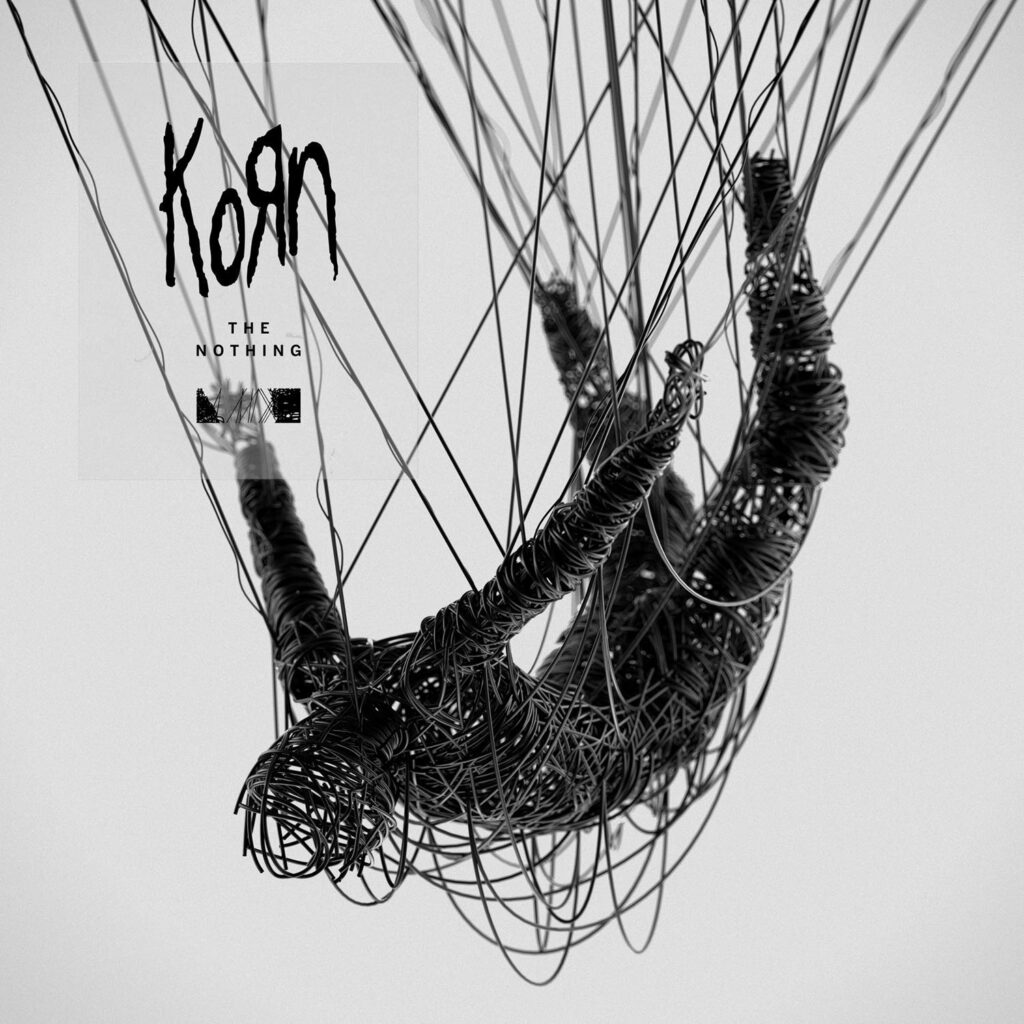
Korn are a band as often derided as praised for a career of remarkable consistency. Despite the electronic digressions (which began with see you on the other side and concluded with the path of totality), the band have rarely strayed too far from the blueprint they originally laid down with their genre-defining debut, whilst still managing to ensure that each album has its memorable moments. In truth, when you are credited with kickstarting a genre (even if you are forced to subsequently distance yourself from the frat boy antics of the bands that followed in your wake), the contradictory pressures both to stay true to your roots and to evolve are immense, and Korn have long been faced with resolving that dilemma. Interestingly, for all the talk of Korn being heavy again, The Nothing, with production from Nick Raskulinecz, Josh Wilbur and David Benveniste, maintains the undercurrent of electronica with the result that it veers almost into industrial territory at times. It is indeed a heavy album, following in the trajectory of the fine the serenity of suffering, but it is, in many ways, Korn’s most nuanced and satisfying record yet, not least thanks to a stellar performance from Jonathan Davis, who seems to be immersed in the vocals in a way not heard since that auspicious debut.
Opening in a swirl of bagpipes, the end begins is a churning mantra with a bass sound that threatens the foundations. It’s a hypnotic, multi-layered opener that sets the tone for the album, Jonathan sounding utterly lost in his delivery, his choking sobs paving the way for the stabbing guitars of cold, a nightmarish cacophony of scattershot screams that gives way to a satisfyingly melodic verse, the track schizophrenically capturing korn both at their heaviest and at their most airy and memorable. The industrial vibe comes more sharply into focus on you’ll never find me, a track that harks back to the tightly-focused writing of follow the leader, but with tougher production. Another example of Korn’s newly refocused approach is the scathing the darkness is revealing, with Munky and Head clearly revelling in peeling out gargantuan riffs with abandon, the track continuously shifting the ground under the listener’s feet as it progresses. In contrast, idiosyncrasy, even taking into account the disco beat that emerges under the chorus, is arguably one of the heaviest tracks to which Korn have yet put their name, Jonathan sounding as if he’s having a meltdown at the mic stand as he screams “god is making fun of me”. Following the short, uncomfortable segue track The seduction of indulgence, the band change the pace with the atmospheric finally free, a track that whilst heavy, showcases those gothic influences that crept into the massively underrated untouchables, with its backwards-phased guitar lines and layers of vocal harmony.
Slower, but no less weighty, can you hear me sees Ray Luzier’s typically excellent drums used alongside electronic elements to add light and shade to the track’s dynamic, the chorus surprisingly memorable thanks to the layering of Jonathan’s vocals. Ticking off all of the tropes one by one, the ringmaster feels like a best of Korn condensed into one track as the band rampage through sludgy riffs, scatt-singing, falsetto and hip-hop groove all in just three minutes. It’s back to follow the leader for the electrifying gravity of discomfort, a dynamic and punchy track that strips the guitars back on the verse all to give the chorus greater weight. An album highlight, the toybox intro and surging riffing of H@rd3r promises to ignite the pit, whilst Jonathan delivers yet another performance of blistering power, shifting from menacing croon to guttural roar with the deft ease of experience underpinned by a sense of genuine emotional turmoil. Equally, This Loss gives voice to Jonathan’s inner demons, the band crafting a swirling, fairground melody that seems to capture the febrile mood perfectly before descending into a cauldron of monstrous riffs and bowel-rupturing bass.The album ends with the harrowing Surrender To Failure, a track infinitely heavier, in emotional terms, than anything the band have recorded since daddy, Jonathan collapsing as he sobs “I failed” over and over. With piano elements in the vein of Nine Inch Nails adding to the appalling sense of loss that pervades the track, it is a punishing end to an album that, whilst not always so harrowing, clearly comes from a deeply personal place.
Over twenty-five years and thirteen albums, Korn have become a significant part of their fan’s lives. The emotional turmoil of that debut album, in many ways, reflected the emotional turmoil that the band’s young fans were also experiencing at that time and, since then, band and fans have grown together – sometimes confident and cocky (follow the leader), sometimes in thrall to what the next generation are up to (the path of totality) and sometimes lost in a sense of grief that is palpable (this latest effort). Although different fans have different favourites, there’s a remarkable consistency to the band’s back catalogue as a whole, although there is a fair argument to be made that the return of Head signalled a particularly impressive run and the nothing is no exception. Dark and disturbing in places, but tempered by some truly blistering single material, the nothing is a powerful body of work – essential for long-time Korn fans and a stinging riposte to anyone who has doubted their continued relevance. 9



